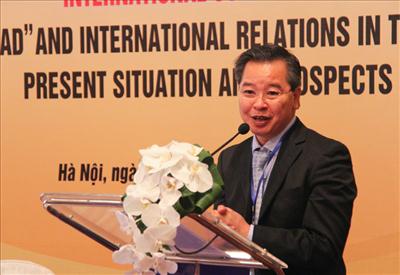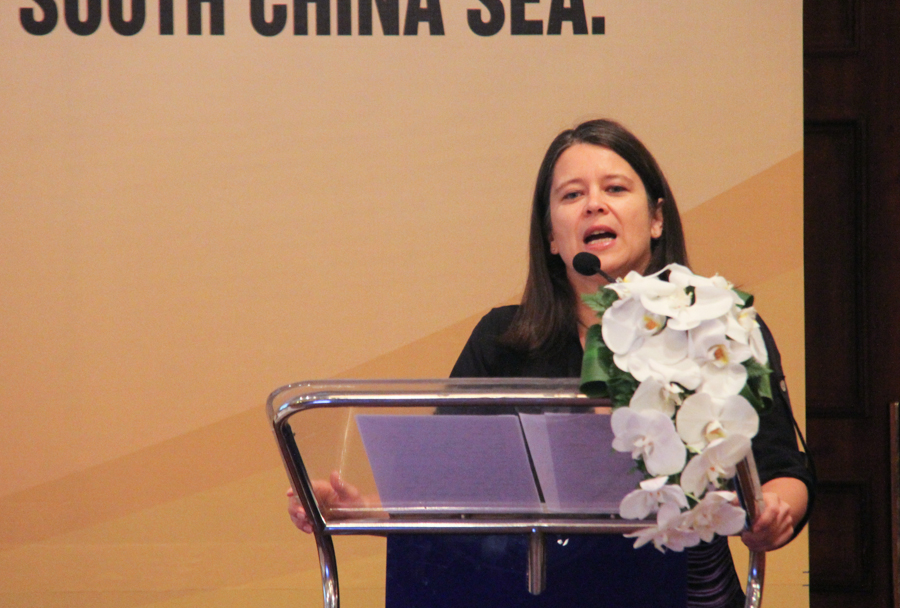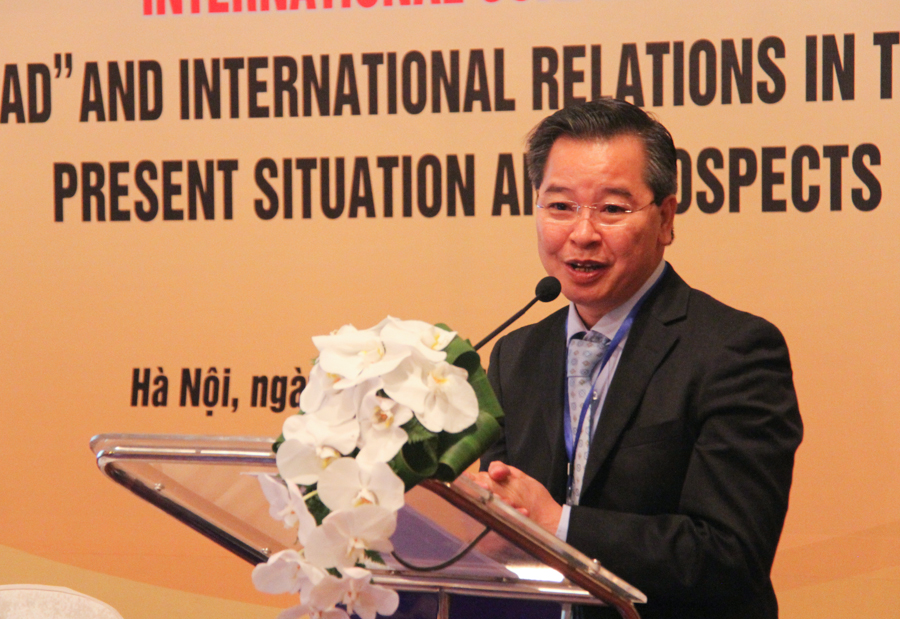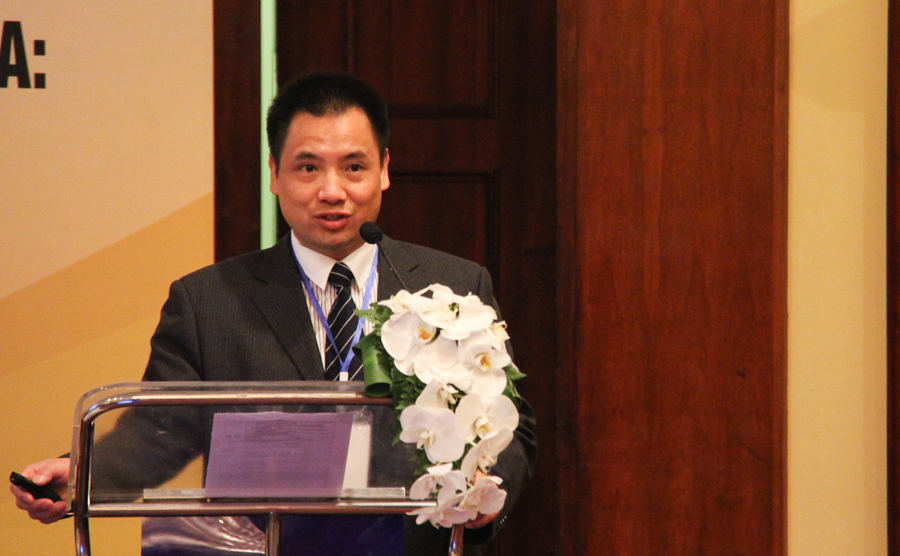
Distinguished guests at the conference included Deputy Foreign Minister Bui Thanh Son and representative of the German Embassy to Vietnam Hans-Jorrg Brunner. Representatives of the organizing committee included Mrs. Rabea Brauer (KAS) and Assoc.Prof.Dr Pham Quang Minh (Vice Rector of USSH).
The prominent domestic and foreign scholars included Dr. Xue Li (Institute of World Economics and Politics, China Academy of Social Sciences); Prof. David Arase (John Hopkins University); Prof. Sejichiro Takaji (Japan Institute of International Affairs); Dr. Nguyen Thanh Minh (Vietnam Coast Guard, Ministry of Defense); Assoc. Prof. Dr Nguyen Thi Lan Anh (Vietnam Academy of Foreign Affairs).

Mrs. Rabea Brauer (KAS) delivers her opening remarks.
Speaking at the conference, Mrs. Rabea Brauer said: “A conference on the 'maritime silk road' was organized last year. Today we continue to discuss its implications for the policy and security situation in each region. We have invited here leading speakers and they are going to exchange their views on the situation and prospects of the maritime silk road on regional and world security and political situation “.
Meanwhile, Assoc. Prof. Dr Pham Quang Minh emphasized the direct impact of the “Maritime silk road” on Vietnam and Southeast Asia: “There have been great changes among ASEAN and the big question is how to respond to these changes. China’s rise is most important among these changes.

Assoc. Prof. Dr Pham Quang Minh delivers his paper
“One belt-one road” is the policy of Chinese leaders in approaching economies and rapidly connecting land and maritime routes that link Asia and the Middle East and Europe. China’s rise influences the Strategy to reorganize the world; changing its landscape and creating lasting impact on the Asian context”.
On November 26th, Dr. Xue Li presented his paper “How does OBOR Strategy Facilitate Sino-ASEAN Ties?” to the conference, in which he remarked the “One belt-one road” policy would be a “crucial strategy” in China’s foreign policy in the coming decade and ASEAN would likely be its first litmus test.

Dr. Xue Li presents his paper
Another paper titled “Historical approach to the origins of maritime silk road” by Dr. Trinh Van Dinh (USSH, VNU) attempted to address the introduction of “maritime silk road” from a political perspective to sketch out the hegemonic ambitions of Chinese kings.
Both papers opened up lively discussions between scholars, as many questions were raised to Dr. Xue Li on Sino-China relations. The questions were responded adequately and scientifically.
The conference was divided into six panels:
Author: Hieu Luong
Reader Comments
Newer articles
Older articles